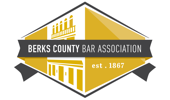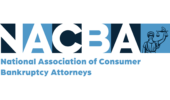First, get a free credit report at www.annualcreditreport.com or call 1-877-322-8228. You can request one free credit report from each of the three major credit reporters, once a year. So, you don’t have to pay for your annual credit reports. Do not contact the three nationwide credit reporting companies individually. Make sure to check all … Read More
How Your Credit Score Can Affect Your Homeowners Insurance
In Pennsylvania, a drop in your credit score could result in non-renewal of your homeowners policy or result in a dramatic increase in your premiums. Insurance companies have determined that there is a connection between credit worthiness and the number of insurance claims a homeowner makes. They believe, the better the credit, the fewer insurance … Read More
Events that affect Homeowner Insurance Rates
Many things affect the rate you are charged for homeowner’s insurance. Making many small claims can lead to termination. Even asking your insurance company about the possibility of making a claim can affect your insurance. Insurance companies can randomly conduct drive-by inspections of properties. If there is an obvious maintenance issue, the insurer may threaten to … Read More
Is My Income Too High to File Bankruptcy?
If you are struggling with debt, but are wondering if you make too much money to file bankruptcy, then read on. To be eligible to file Chapter 7, you must pass what is called a “means test”; this determines whether or not your income is low enough to qualify. Your debts have to be primarily … Read More
9 Bankruptcy Myths: Experiencing Financial Problems? Filing for Bankruptcy May Be The Solution
Filing for bankruptcy is a serious financial decision. If you aren’t able to pay your bills, but you’re afraid to file bankruptcy, read on… Myth 1. You’ll lose everything. Contrary to what you might have heard, by filing, you’re likely to keep a lot of your possessions. What assets may be exempt varies from state … Read More
Discharging Taxes in Bankruptcy: Helpful Advice
Unfortunately, most tax related debts cannot be discharged (wiped out) from filing bankruptcy. You generally will continue to owe even at the end of your Chapter 7 bankruptcy case. Or if you file Chapter 13, you will have to repay your taxes in full, in a Chapter 13 bankruptcy repayment plan. However, if you want … Read More
Bankruptcy and Student Loans
As a general rule, even though filing bankruptcy can wipe away bills like mortgages, medical bills and credit card debt, most debtors cannot be discharged from their student loan debt. However, if you can prove that by repaying your student loan, it will cause an undue hardship, you may be able to get rid of … Read More
Should I buy or lease a new car?
There are pros and cons to both leasing and buying a new car; much has to do with your present and future life style and financial circumstances. When you buy a car you own it; you can do as you please, modify it, and drive it as often as you like. You will retain the … Read More
What is the Automatic Stay and the Motion for Relief? How does this apply to me?
Automatic Stay In U.S. bankruptcy law, the automatic stay provides those debtors who have declared bankruptcy protection from creditors by halting their actions in collecting debts (there are some exceptions). The stay begins the moment the bankruptcy petition is filed. No action besides filing a bankruptcy petition is required for the automatic stay to go … Read More
How to Rebuild Credit After Bankruptcy
Whether you filed bankruptcy already, or are contemplating filing, you can cease the opportunity for a do over. In this day and age it can make life easier to have credit cards or be credit worthy to apply for loans to buy a home or car. Therefore, re-establishing good credit is important and rebuilding your … Read More
- « Previous Page
- 1
- …
- 4
- 5
- 6
- 7
- Next Page »



















 View Our Avvo Profile
View Our Avvo Profile
